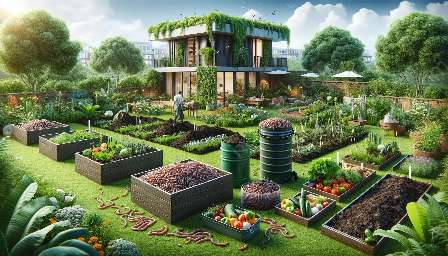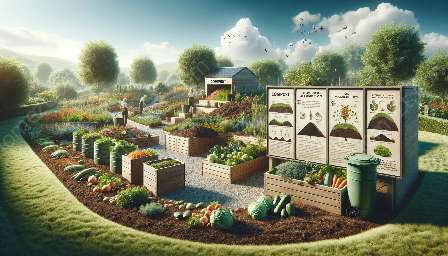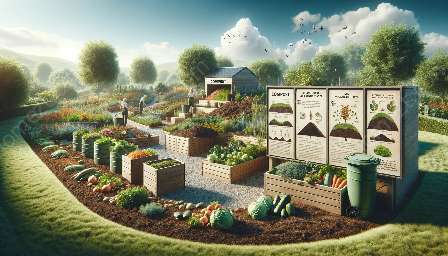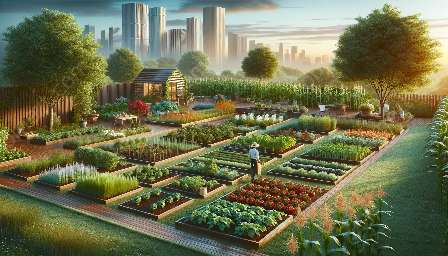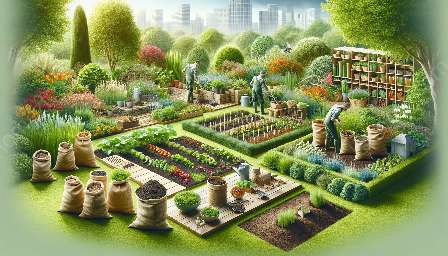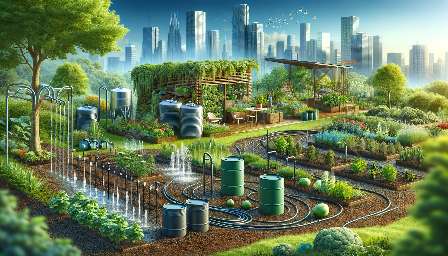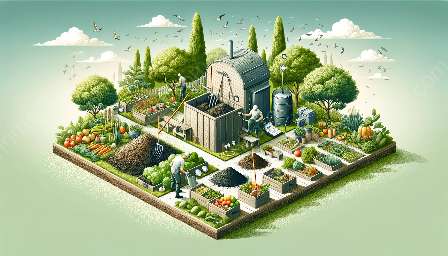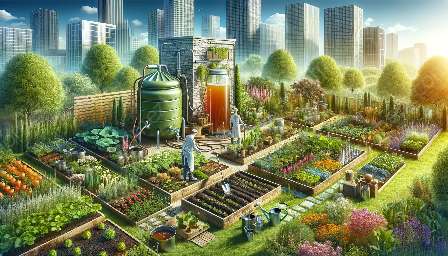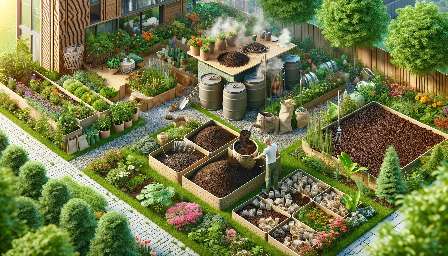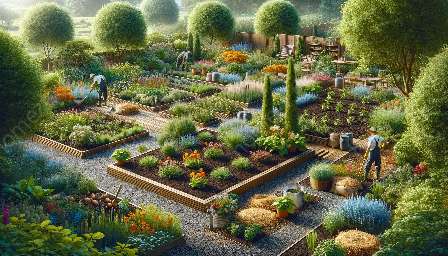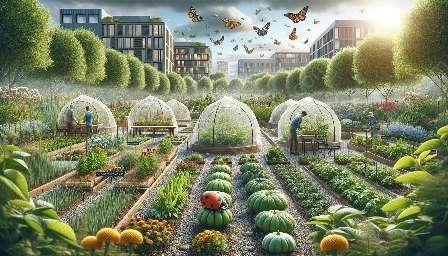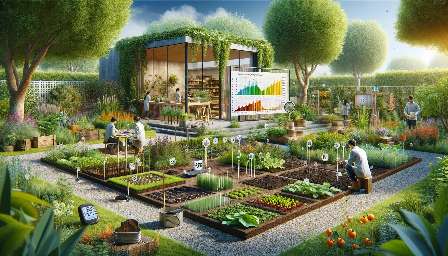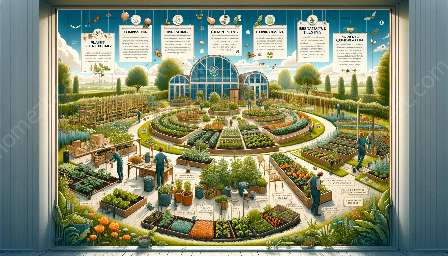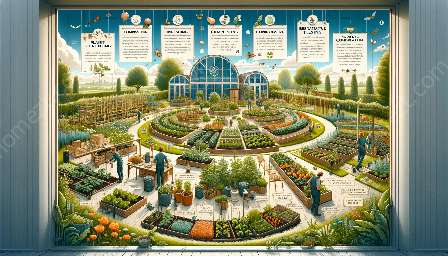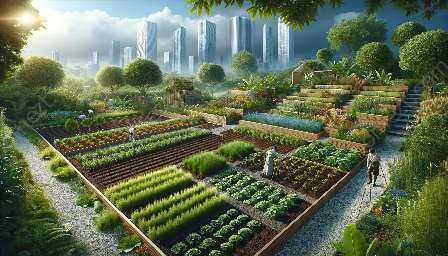Organic gardening is a sustainable and eco-friendly method of growing plants and flowers without the use of synthetic chemicals or fertilizers. It is a holistic approach that focuses on promoting soil health, biodiversity, and natural processes to create a healthy and productive garden. By incorporating composting into organic gardening, you can further enhance the fertility of your soil and reduce waste. This topic cluster aims to explore the principles and practices of organic gardening, the importance of composting in this context, and how these techniques can be applied to your garden for a thriving and sustainable environment.
The Principles of Organic Gardening
Organic gardening is guided by several core principles that promote environmental sustainability and the overall well-being of plants and soil. These principles include:
- Biodiversity: Organic gardening emphasizes the importance of fostering a diverse range of plant species to create a resilient and balanced ecosystem. By planting a variety of flowers, vegetables, and herbs, you can support beneficial insects, pollinators, and natural pest control.
- Soil Health: Healthy soil is the foundation of successful organic gardening. It is achieved by avoiding synthetic chemicals and pesticides, promoting the growth of beneficial microorganisms, and maintaining proper soil structure and fertility through regular additions of organic matter.
- Ecological Balance: Organic gardening seeks to work in harmony with nature, striving to create a balanced and sustainable environment that mimics natural ecosystems. This involves minimizing disruption to the natural processes of the garden and promoting the interdependence of plant and animal life.
- Resource Conservation: Organic gardening prioritizes the efficient use of resources, such as water, energy, and nutrients. Techniques such as mulching, composting, and water-wise practices reduce waste and promote long-term sustainability.
- Non-toxic Practices: Organic gardening avoids the use of synthetic pesticides, herbicides, and fertilizers that can harm the environment, wildlife, and human health. Instead, natural and organic products, as well as biological controls, are utilized to manage pests and diseases.
Practices for Organic Gardening Success
Successful organic gardening involves the implementation of specific practices that align with its guiding principles. Some key practices include:
- Composting: Composting is a fundamental practice in organic gardening, as it provides a rich source of organic matter and nutrients for the soil. By composting kitchen scraps, garden waste, and other organic materials, you can create a valuable soil amendment that enhances fertility, improves soil structure, and promotes beneficial microbial activity.
- Crop Rotation: Rotating crops from season to season helps prevent the build-up of pests and diseases, maintains soil fertility, and promotes biodiversity. It also allows the soil to rest and recover, reducing the need for synthetic inputs.
- Companion Planting: Companion planting involves growing certain plants together to benefit each other in various ways, such as repelling pests, attracting pollinators, or providing nutrients. This natural method can help improve plant health and reduce the need for chemical interventions.
- Integrated Pest Management (IPM): IPM combines various strategies, including the use of beneficial insects, cultural practices, and natural products, to manage pests and diseases in a sustainable and environmentally friendly manner.
- Water Conservation: Efficient water usage, such as through the use of drip irrigation, mulching, and proper timing of watering, is essential for organic gardening. Conserving water not only reduces environmental impact but also promotes healthier and more resilient plants.
Applying Organic Gardening Principles to Your Garden
To create a successful organic garden, these principles and practices can be incorporated into your gardening endeavors:
- Soil Preparation: Prioritize soil health by amending with compost and organic matter to provide nutrients, improve structure, and support beneficial soil organisms.
- Plant Selection: Choose disease-resistant and regionally adapted plant varieties to encourage biodiversity and reduce the need for chemical interventions.
- Mulching: Apply mulch to suppress weeds, retain soil moisture, regulate soil temperature, and gradually contribute organic matter to the soil as it decomposes.
- Composting: Integrate composting into your gardening routine to recycle organic waste, reduce landfill impact, and enrich the soil with valuable nutrients.
- Natural Pest Control: Utilize biological controls, such as predatory insects and companion plants, to manage pests in a non-toxic and environmentally friendly manner.
- Regular Maintenance: Embrace sustainable practices, from responsible watering and fertilizing to careful observation and maintenance of a balanced, harmonious ecosystem.
- Continuous Learning: Stay informed and open to new organic gardening techniques, as this field is constantly evolving with innovative and sustainable practices.
By embracing these organic gardening principles and practices, alongside composting and a holistic approach to gardening, you can create a vibrant, resilient, and sustainable garden that thrives in harmony with nature.


